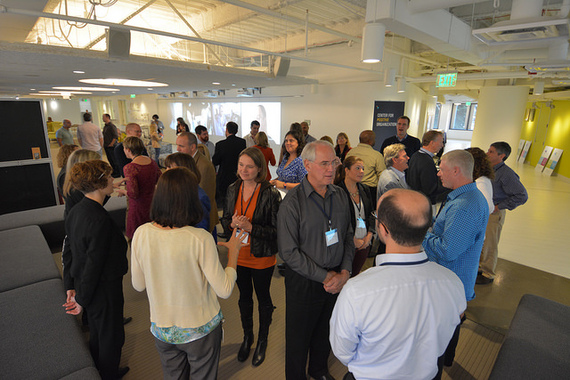A few years back, my friend Michael was a successful student here at Michigan Ross. With a winning personality, work experience at a top Internet company, and an advanced degree from a prestigious business school, Michael had his pick of post-graduation employers. He decided to join a prominent West Coast tech company, and was seemingly destined for great things.
Less than a year later, Michael was wondering how long he could tough it out before leaving. His manager was an archetypal bad boss: controlling, micro-managing, power-hungry, fostering toxic behaviors and distrust among team members. Michael couldn't thrive in that environment. He began actively searching for a way out of the company.
Unfortunately, many of us can relate to Michael's situation. Low engagement levels at work are a tragedy for individuals, organizations, the economy, and society. However, engagement at work does not need to be the exception. We can even aspire to go beyond engagement, and even move toward thriving at work.
A thriving employee is defined as one that experiences both vitality and learning at work. Vitality refers to "the positive feeling of having energy available," and learning refers to "the sense that one is acquiring, and can apply, knowledge and skills." This learning + vitality cocktail pays rich dividends. In a study by the Center for Positive Organizations' Gretchen Spreitzer and Christine Porath, those who experience thriving at work were perceived as having 16% better performance by their managers, and self-reported 125% less burnout. They were 32% more committed to their organization, and 46% more satisfied with their jobs.
So how do we create conditions for people to thrive at work? Here are two tangible practices from How To Be A Positive Leader, a book edited by Jane Dutton and Spreitzer, to help you create conditions that enable thriving at work and beyond:
- Invest in relationships that energize.
When you think back on your interactions at work this week, which left you with more energy? Which of them depleted your energy? See if you can increase the time you spend with the energizers, and reduce the time you spend with the energetic black holes.
Relationships can be a great source of thriving. Positive relationships at work are energizing, and a good social network provides a great knowledge-sharing experience. Having people at work who make you feel cared for and supported makes you that much more excited and willing to collaborate with them. Indeed, Gallup points to having a best friend at work as a key variable in predicting engagement at work. Conversely, de-energizing relationships can have the opposite effect. So actively choose to invest your energy in those relationships that energize you, and minimize those that deplete you. Michael recognized a de-energizing relationship when he saw one, and it caused him to leave.
We learn and grow much faster with the benefit of feedback. The problem is, honest feedback can be hard to both give and receive. That's why it's so important for organizations to create a culture where feedback seeking is encouraged.
These are two starting points for creating conditions to enable thriving at work. What are you going do this week to enable your own thriving and the thriving of others?
Chris White (@leadpositively, leadpositively.com) is managing director of the Center for Positive Organizations (@PositiveOrg) at the University of Michigan's Stephen M. Ross School of Business. How are you building high-performing organizations that make a positive difference in the world, and enable people to thrive? Share your positive practices via the Positive Business Project!

